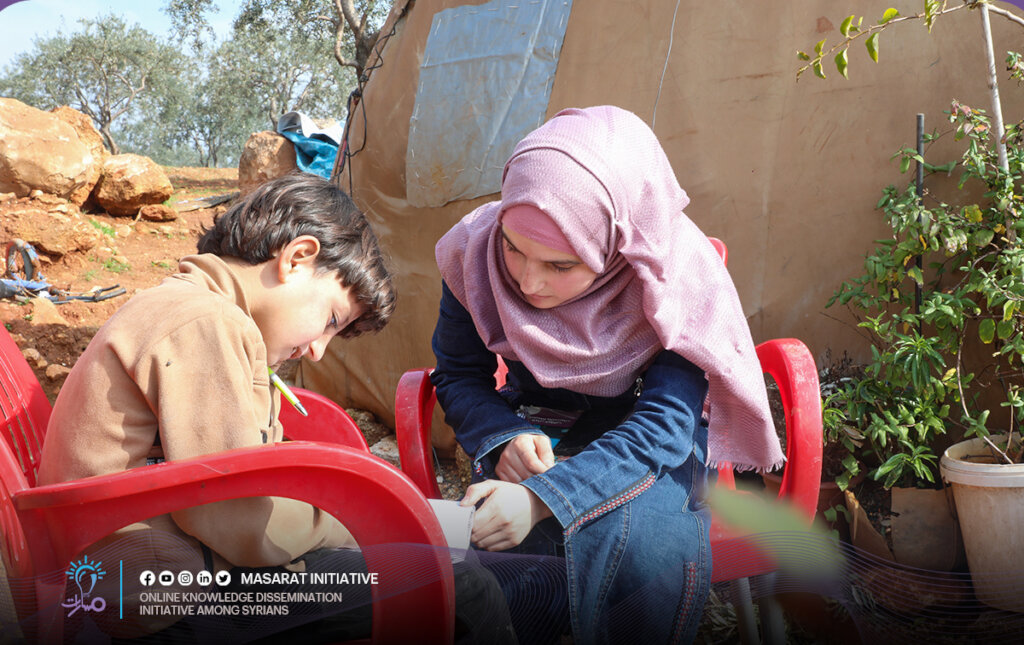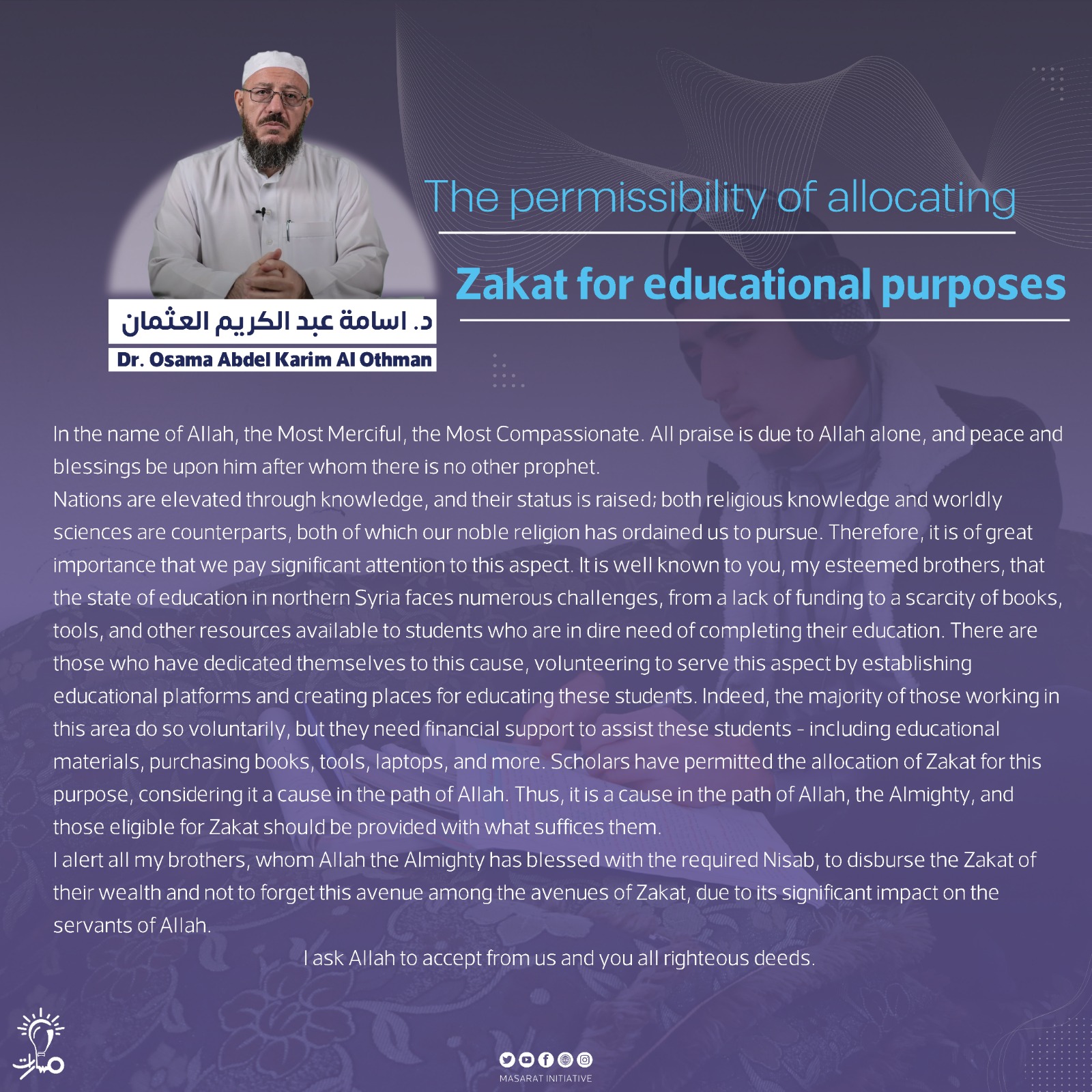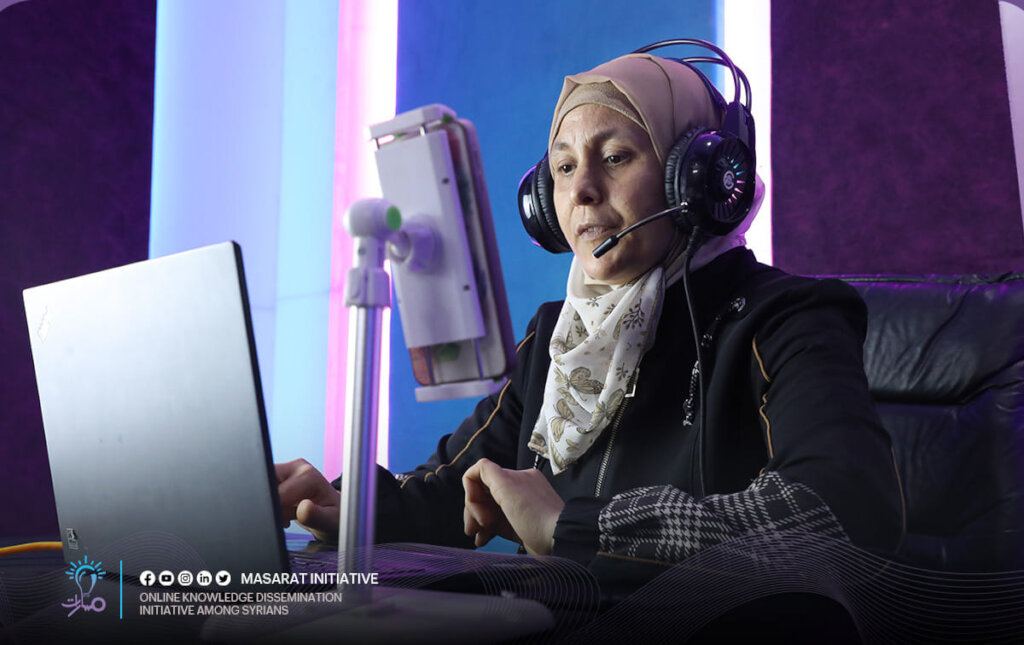Zakat on Al-mal is a religious obligation that must be fulfilled by Muslims who possess a surplus of wealth. Allah mandated it to ensure a closeness between the rich and the poor and to support Muslims for each other, as well as to shield the Muslim who possesses wealth from stinginess towards others.
In this article, we discuss the most important aspects of Zakat on Al-mal; what are its eight designated allocations as defined by Allah Almighty in His noble book.
When is Zakat on Al-mal Due?
Zakat on Al-mal is obligatory according to a threshold set by the Sharia; if the wealth falls below the value of the threshold during the lunar year, Zakat is lifted from it. Zakat on Al-mal becomes obligatory when these two conditions are met:
- The wealth reaches the Nisab (threshold); which is equivalent to the value of 85 grams of gold.
- A full lunar year passes since possessing the wealth.
To Whom is Zakat on Al-mal Given?
Allah has detailed in His noble book the verse that specifies the eight avenues for spending Zakat on Al-mal; to whom it is given and what are the Sharia conditions for giving Zakat on Al-mal.
Allah Almighty said: “Zakat expenditures are only for the poor and for the needy and for those employed to collect [Zakat] and for bringing hearts together [for Islam] and for freeing captives [or slaves] and for those in debt and for the cause of Allah and for the [stranded] traveler – an obligation [imposed] by Allah. And Allah is Knowing and Wise.”
The Eight Sharia Allocations for Zakat on Al-mal
The eight Sharia allocations are the categories to which Zakat on Al-mal can be given according to a priority set by the Sharia. These categories include:
The Poor: Those who do not have enough to cover their basic needs, and are in dire need, hence Allah mentioned them first in the verse.
The Needy: Those who own half of their needs. They possess wealth but it does not cover all their needs.
Those Employed to Collect It: These are individuals tasked with collecting and distributing Zakat on Al-mal, as prescribed by the Sharia. They may not be poor but are entitled to a wage for their work in collecting Zakat.
Those Whose Hearts are to be Reconciled: New Muslims or those inclined towards Islam, and Zakat is given to them to strengthen their faith.
The Captives: Slaves or prisoners who need money for their freedom; Allah has permitted the use of Zakat funds for freeing Muslim captives.
Those in Debt: Individuals who cannot repay their debts, and Zakat on Al-mal is given to settle their debts.
In the Cause of Allah: Everything that is a Jihad in Allah’s cause like students of knowledge whose pursuit of religious or worldly sciences is considered a Jihad.
The Wayfarer: Travelers or passersby who need financial support to meet their basic needs during their journey.
The Best Allocations for Zakat on Al-mal for Sustained Reward
Zakat is given to those of righteousness and success, so whoever is pious, needy, and requires money; or for a destitute need, is the most deserving of receiving Zakat on Al-mal because the mention of the poor and the needy comes first in the verse due to their severe need for money.
Therefore, when discharging Zakat on Al-mal, it should be given to those who truly deserve it, within the eight Sharia categories; the most deserving are the people of religion who uphold the law of Allah Almighty, and the people of knowledge who strive to fill the earth with goodness and benefit.
Masarat for Sustainable Education and Training in Northern Syria
Amidst displacement movements and the spread of refugee camps, especially the informal ones, the educational infrastructure was destroyed, and with the increase in poverty rates, the dropout rate, especially among orphans and those with disabilities, has risen. Therefore, Masarat works to provide free education online, reaching them in their homes and inside their worn tents.
We offer them education and knowledge through an integrated knowledge system aimed at building a competent individual to live a dignified life.
Your donation today contributes to expanding the target range and reaching thousands of orphans who have left their studies and entered the labor market. Remember the Prophet’s saying, “I and the guardian of an orphan will be in Paradise like this.”










